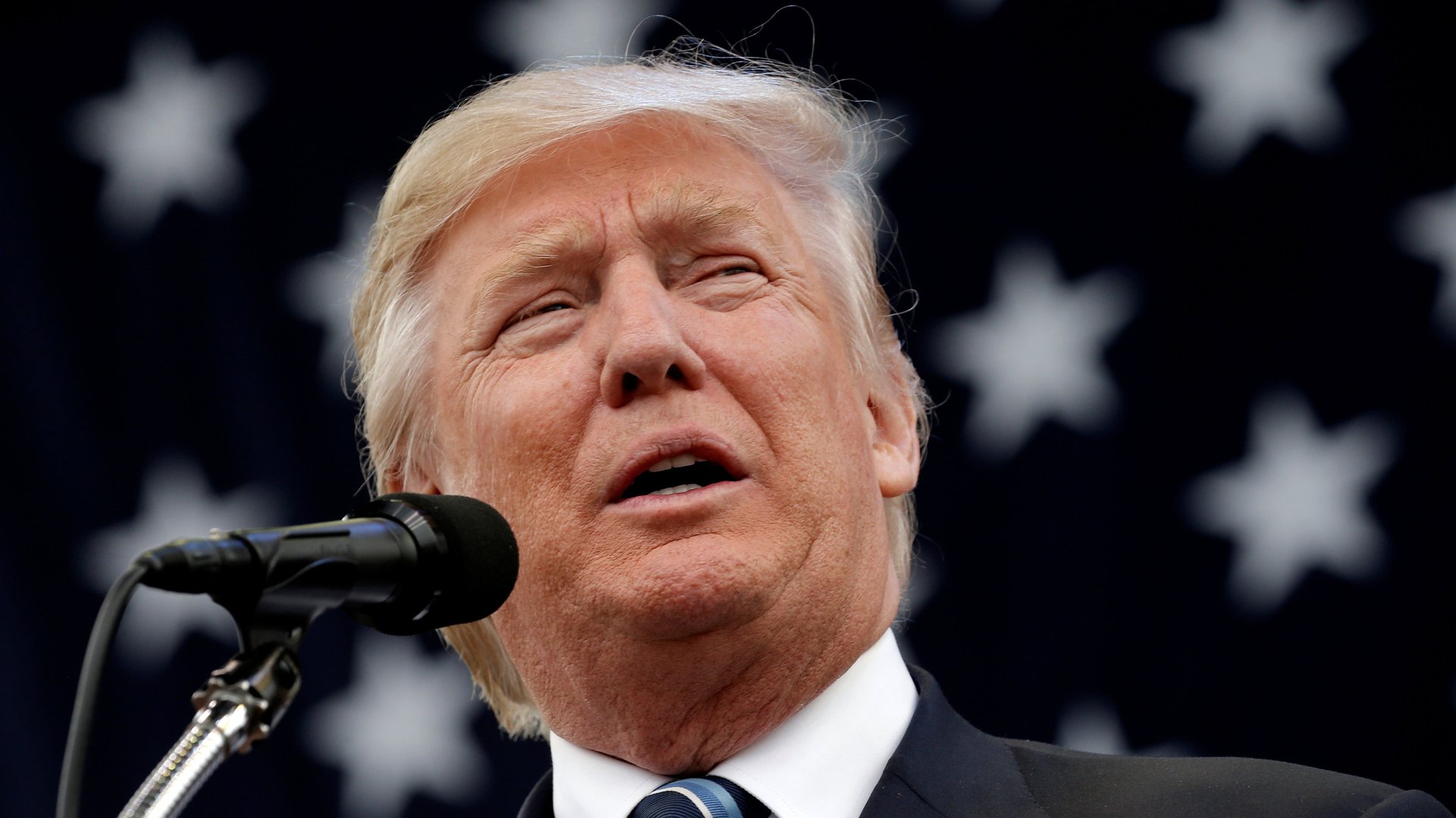Being the victimizer wasn’t working, so Donald Trump is now playing the victim
Donald Trump has been labeled a “bully” throughout much of his campaign for the US presidency. But after his operation recently suffered from mounting allegations of sexual assault following the release of a 2005 video in which he boasted about forcing himself on women, Trump has been trying to frame himself in a new light: He now contends he’s the victim.


Donald Trump has been labeled a “bully” throughout much of his campaign for the US presidency. But after his operation recently suffered from mounting allegations of sexual assault following the release of a 2005 video in which he boasted about forcing himself on women, Trump has been trying to frame himself in a new light: He now contends he’s the victim.
After two more women stepped forward to accuse him of sexual assault, the Republican candidate spoke at a rally in North Carolina yesterday (Oct. 14). ”I am a victim of one of the great political smear campaigns in the history of our country,” he said. “They are coming after me to try and destroy what is considered by even them [to be] the greatest movement in the history of our country.”
These new accusers add to what’s become a long—and evidently still growing—list of women who say Trump has grabbed or kissed them without their consent. But Trump says he did not victimize these women. Instead, he claims that he is the victim of a conspiracy between the media and his opponent, Democratic candidate Hillary Clinton, to “rig” the upcoming election. Trump repeated those claims again on Twitter early this morning.
The concern among some political commentators, such as Chris Cillizza at the Washington Post, is that Trump is setting the stage to evade conceding defeat if he loses to Clinton in November. The thinking goes that if he is the victim of an unfair election, his supporters will not feel compelled to accept the outcome of the vote.
Sarah Kendzior recently reported for Quartz on how that sentiment is growing, as illustrated by some of Trump’s supporters: “I’m on social media all day, every day, non-stop since last June pushing Trump, and one of the biggest things I can tell you that a lot of us are scared of is this voter fraud,” a woman named Rhonda told Trump’s running mate, Mike Pence, at an Oct. 11 rally. “I’ll tell you just for me, and I don’t want this to happen, but for me personally, if Hillary Clinton gets in, I’m ready for a revolution, because we can’t have her in.”
At the moment, nearly all polls show Clinton with a solid lead, suggesting a loss may be in store for Trump. Cillizza argues that Trump will pursue one of two paths in that scenario: He could form his own conservative third party, or he could found his own media network.
Either way, Trump’s politics of grievance seem set to carry on well past November’s election.